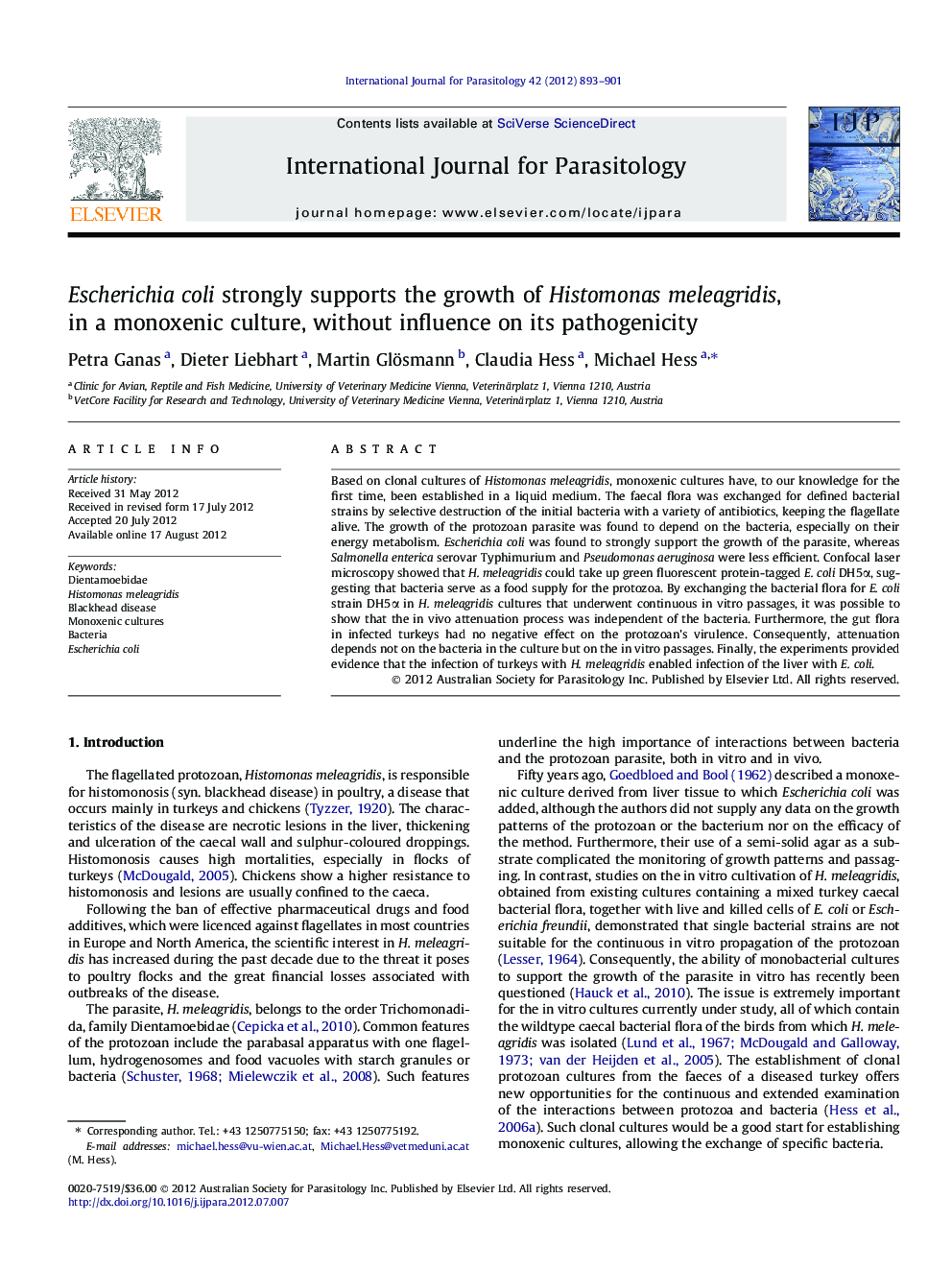| Article ID | Journal | Published Year | Pages | File Type |
|---|---|---|---|---|
| 2436263 | International Journal for Parasitology | 2012 | 9 Pages |
Based on clonal cultures of Histomonas meleagridis, monoxenic cultures have, to our knowledge for the first time, been established in a liquid medium. The faecal flora was exchanged for defined bacterial strains by selective destruction of the initial bacteria with a variety of antibiotics, keeping the flagellate alive. The growth of the protozoan parasite was found to depend on the bacteria, especially on their energy metabolism. Escherichia coli was found to strongly support the growth of the parasite, whereas Salmonella enterica serovar Typhimurium and Pseudomonas aeruginosa were less efficient. Confocal laser microscopy showed that H. meleagridis could take up green fluorescent protein-tagged E. coli DH5α, suggesting that bacteria serve as a food supply for the protozoa. By exchanging the bacterial flora for E. coli strain DH5α in H. meleagridis cultures that underwent continuous in vitro passages, it was possible to show that the in vivo attenuation process was independent of the bacteria. Furthermore, the gut flora in infected turkeys had no negative effect on the protozoan’s virulence. Consequently, attenuation depends not on the bacteria in the culture but on the in vitro passages. Finally, the experiments provided evidence that the infection of turkeys with H. meleagridis enabled infection of the liver with E. coli.
Graphical abstractFigure optionsDownload full-size imageDownload high-quality image (130 K)Download as PowerPoint slideHighlights► Monoxenic clonal Histomonas meleagridis cultures were established in liquid medium. ► Growth behaviour of the parasite depended on the bacterial energy metabolism. ► Escherichia coli strongly supported the growth of the parasite in monoxenic cultures. ► The attenuation process of H. meleagridis is independent from the bacteria. ► The attenuation depends on the performed in vitro passages.
